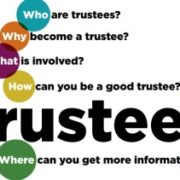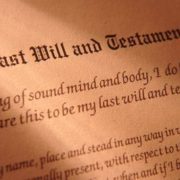Posts
What If My Trustee Is Concealing Trust Assets?
/in Estate Administration /by Dan BaronCleveland, Ohio, estate planning law firm, Baron Law LLC, Cleveland, Ohio, offers information for you to reflect upon while you are setting out looking for an estate planning attorney to help protect as much of your assets as you can. For more comprehensive information contact Baron Law Cleveland to draft your comprehensive estate plan to endeavor […]
How Do Businesses Collect a Debt?
/in Business Law /by Dan BaronCleveland, Ohio, business law firm, Baron Law LLC, Cleveland, Ohio, answers questions on the laws which need to be followed when attempting to collect a debt. For more comprehensive information contact Baron Law Cleveland to schedule an appointment if you have found yourself in a situation where you are unable to collect a debt.
Unfortunately, people don’t pay their bills on time, sometimes not at all. This is just a reality of business. Tenants fail to pay rent, purchasers don’t pay in full, and business associates don’t uphold their end of the bargain. Naturally, the human reaction is to immediately go after wrongful parties and get what you’re owed. In reality, however, debt collection is not a simple and straight forward process. That is why third-party collectors are often used. However, over the many decades and centuries of business, whether a legitimate debt was owed or not, these collectors went too far in attempting to right a wrong. In response, nowadays there are rules and regulations governing debt collection practices to prevent misconduct. As such, cavalier or aggressive debt collection practices can, ironically, make a legitimate debtor liable for more than the debt they are trying to collect on. This is why contacting the services of a local Cleveland area business attorney is so critical. A single lawsuit over debt collection misconduct can ruin a quarter, but longtime or routine debt collection misconduct can lead to bankruptcy via litigation.
- What laws apply when I’m trying to collect a debt?
The three main laws that every third-party debt collector should be aware of when collecting debts is 1) the Fair Debt Collection Practices Act, 2) the Ohio Fair Debt Collection Practices Act, and 3) the Consumers Sales Practices Act.
- FDCPA – this federal law limits the behavior and methods of third-party debt collectors who are trying to collect a debt for another, whether a real person or otherwise. Within are rules regarding timing, method, and form of contact, causes of action for misconduct, and duties of specialized debt collection personnel.
- OFDCPA – This Act primarily concerns the legal conventions and guidelines that must be observed when a debt is assigned for collection by another, i.e. a third-party creditor. The Ohio FDCPA adds additional safeguards to the Federal FDCPA in order to ensure assignees of debts are legitimate businesses with legitimate credit claims.
- CSPA – this law primarily provides causes of action for deceptive trade practices, of which debt collection is regularly a context. Various Ohio courts have said that various violations of the FDCPA constitute a violation of the CSPA in that the purpose of both acts is to prohibit both unfair and deceptive acts and any violation of the FDCPA is necessarily an unfair and deceptive act or practice in violation of the CSPA.
What are the things I can’t do when collecting a debt?
Simply, a third-party debt collector cannot engage in deceptive trade practices. What is a deceptive trade practice is a much litigated issue. However, the particulars of what conduct constitutes a deceptive trade practice are too numerous to go over here, but a local Ohio business attorney will be more than happy to fill you in on the details and makes sure you’re not violating State and/or Federal law.
The short answer though, in the context of debt collection, is that a deceptive trade practice is an activity by an individual or business that is meant to mislead or lure a debtor into paying a debt that isn’t owed, paying more than is owed, attempting to collect in an aggressive, harassing, offensive manner or failing to follow proper form when communicating with a debtor. Within the FDCPA, OFDCPA, and CSPA, there are sections which explicitly state that a violation or one or more provisions of the law is conclusively a deceptive trade practice thus justifying damages.
How much lability could I be facing for improper debt collection?
Just under the FDCPA alone, any debt collector who fails to comply with any provision of this law with respect to any person is liable to such person in an amount equal to the sum of
(1) any actual damage sustained by such person as a result of such failure;
(2) additional damages up to $1,000; and/or
(3) reasonable attorney’s fees if the court finds them justified.
How do I make sure I’m not breaking the law when trying to collect?
State and federal law must be followed to the letter when attempting in collect on a third-party debt. An Ohio business attorney can create a compliant debt collection program, complete with compliant forms and communications, to ensure any legitimate debt isn’t consumed by legal damages.
There are, however, some standard methods to remain compliant under state and federal law.
- Mini Miranda Notice – the law requires that any debt collector inform a debtor in the initial communication that “this communication is from a debtor collector. This is an attempt to collect a debt and any information obtained will be used for that purpose.” This is commonly called the mini-Miranda and puts the debtor on notice of who they are speaking with and why. If the first communication with the debtor is oral, this notice must be given orally and included in the first written communication. Regardless of who initiates communication, this notice must be given.
- Debt Validation Notice – every third-party collector must within 5 days of the initial communication send the debtor written notice containing the following:
1) the amount of the debt,
2) name of creditor that’s owed the debt,
3) statement that unless the consumer, within thirty days after receipt of the notice, disputes the validity of the debt, or any portion thereof, the debt will be assumed to be valid by the debt collector,
(4) a statement that if the consumer notifies the debt collector in writing within the thirty-day period that the debt, or any portion thereof, is disputed, the debt collector will obtain verification of the debt or a copy of a judgment against the consumer and a copy of such verification or judgment will be mailed to the consumer by the debt collector, and
(5) a statement that, upon the consumer’s written request within the thirty-day period, the debt collector will provide the consumer with the name and address of the original creditor, if different from the current creditor.
The purpose of this notice is to inform debtor of important rights, timing deadlines, and authenticity of the debt being pursued.
It is never fun for either the debtor, creditor, or collector to pursue an outstanding debt. Feelings get hurt, lives are disrupted, and valuable business resources and time is wasted. Therefore, it is wise to ensure that state and federal laws are not being broken on top of all that. Throwing potential litigation in with the contentious profession of debt collection begs for trouble. As such, wise debt collectors retain the counsel and guidance of experienced business attorneys to enable them to focus on recovering debts, not worrying about compliance with government rules and regulations.
You don’t have to be rich to protect what you’ve spent a lifetime trying to build. To find out whether a trust is right for your family, take the one-minute questionnaire at www.DoIneedaTrust.com. There are a number of different trusts available and the choices are infinite. With every scenario, careful consideration of every trust planning strategy should be considered for the maximum asset protection and tax savings. For more information, you can contact Mike Benjamin of Baron Law LLC at 216-573-3723. Baron Law LLC is a Cleveland, Ohio area law firm focusing on estate planning and elder law. Mike can also be reached at mike@baronlawcleveland.com.
Helping You And Your Loved Ones Plan For The Future
About the author: Mike E. Benjamin, Esq.
Mike is a contracted attorney at Baron Law LLC who specializes in civil litigation, estate planning, and probate law. He is a member of the Westshore Bar Association, the Ohio State Bar Association, the Cleveland Metropolitan Bar Association, and the Federal Bar Association for the Northern District of Ohio. He can be reached at mike@baronlawcleveland.com.
Spousal Rights – Are You Forced To Take What Is Bequeathed?
/in Estate Administration, Wills and Trusts /by Dan BaronCleveland, Ohio, estate planning law firm, Baron Law LLC, Cleveland, Ohio, offers the following information on how to handle your spouses will after they pass. Are you forced to take what is left to you? Contact Baron Law Cleveland to answer this question and any other questions you may have on wills and probate.
Humans are material creatures, it’s just how we’re wired. We all like stuff, we all want stuff. The only difference between people is the target of that want and the severity of that desire. Though the passing of a friend, loved one, or spouse is a mournful event whose significance shouldn’t be understated. At the end of the day, the most common question I hear when a person comes into the office with a will of a recent decedent is, “what do I get?” More often than not, the next question after that is, “what else can I get?”
Whether its due to genetics, environment, habits, or just dumb luck, women live, on average, seven years longer than men. So naturally, women are more often responsible for probating their husband’s will and receiving distributions under it. Regardless of sex, however, under Ohio law, surviving spouses are granted the ability to elect either 1) to receive the surviving spouse’s testamentary share as provided in the decedent’s will, “taking under a will;” or 2) to take against the will. This “taking against the will” is called an election to take under the law. Which option to take is a momentous decision that can affect the total windfall of the surviving spouse, the distributions to beneficiaries and heirs, and temperament of surviving friends and family. A local Cleveland estate attorney is in the best position to calculate the options and spell out the pros and cons of each.
If the surviving spouse elects to take against the will, the surviving spouse receives either one-half or one-third of the decedent’s net estate. The surviving spouse receives one-half of the decedent’s net estate unless two or more of the decedent’s children or their lineal descendants survive the decedent, in which case the surviving spouse receives one-third.
So how does one elect to “take against a will?” After the appointment of an executor or administrator, the probate court will issue a citation to the surviving spouse to elect whether to take under the will or against the will. This election must be made within the five-month statutory period or else be forever barred. If you chose to take against the will, you return the form attached to the notice and the court sets a hearing.
At the hearing to elect to take against a will, the probate judge or deputy clerk, who acts as a referee, will explain the will, the rights under the will, and the rights, by law, in the event of a refusal to take under the will. If the surviving spouse is unable to make an election due to a legal disability, the court will appointment an appropriate proxy to determine if an election to take against the will is the best course of action for the surviving spouse and, if it’s the best course of action, make the actual election.
Unless a will expressly states otherwise, an election against a will results in the balance of the net estate being disposed of as though the surviving spouse had predeceased the testator. Furthermore, unless a trust says otherwise, if a will transfers property to a trust created by the testator during the testator’s life, such as with a pour-over will, and the spouse elects against the will, then the surviving spouse is considered for purposes of the trust to have predeceased the testator, and there shall be an acceleration of remainder or other interests in all property bequeathed or devised to the trust by the will, in all property held by the trustee at the time of the death of the decedent, and in all property that comes into the possession or under the control of the trustee by reason of the death of the decedent. Again, an election to take against a will can have serious ramifications for a decedent’s estate plan. An Ohio estate planning attorney will be better able to spell out the consequences of such an election and track which estate assets may be effected by an election and in what ways.
It is important to note, however, that an election to take against a will does not alter or destroy the will for other beneficiaries. Upon an election against a will, the administrator or executor of the estate must still attempt to follow the testator’s intent and final wishes to the best of the fiduciary’s ability as to all others in a will except the surviving spouse.
The only real ways to waive or eliminate the statutory right of the surviving spouse to elect to take against a will is either a valid prenuptial agreement or antenuptial agreement. These agreements, however, are not guaranteed effective and are only valid if 1) they have been entered into freely without fraud, duress, coercion, or overreaching, 2) if there was a full disclosure, or full knowledge and understanding of the nature, value, and extent of the prospective spouse’s property, and 3) if the terms do not promote or encourage divorce or profiteering by divorce. With the recent rise of divorce rates in America nuptial agreements are steadily gaining in popularity and use. As such, consult an Ohio attorney to find out if nuptial agreements are right for you or if the nuptial agreements you already have are either valid or actually fulfilling their intended purpose.
Spousal rights were created to ensure that surviving spouses aren’t maliciously or wrongfully cut out from a will. Improper disinheritance from a will can result in a surviving spouse falling into poverty, being kicked out of a lifelong martial home, or becoming a burden on friends and family. Though it may seem unseemly to focus on material possessions when a spouse passes, the responsibilities and burdens of day to day living still persist regardless. You still need food in the fridge and a roof over your head. After all, as Langston Hughes said, “life is for the living.”
You don’t have to be rich to protect what you’ve spent a lifetime trying to build. To find out whether a trust is right for your family, take the one-minute questionnaire at www.DoIneedaTrust.com. There are a number of different trusts available and the choices are infinite. With every scenario, careful consideration of every trust planning strategy should be considered for the maximum asset protection and tax savings. For more information, you can contact Mike Benjamin of Baron Law LLC at 216-573-3723. Baron Law LLC is a Cleveland, Ohio area law firm focusing on estate planning and elder law. Mike can also be reached at mike@baronlawcleveland.com.
Helping You And Your Loved Ones Plan For The Future
About the author: Mike E. Benjamin, Esq.
Mike is a contracted attorney at Baron Law LLC who specializes in civil litigation, estate planning, and probate law. He is a member of the Westshore Bar Association, the Ohio State Bar Association, the Cleveland Metropolitan Bar Association, and the Federal Bar Association for the Northern District of Ohio. He can be reached at mike@baronlawcleveland.com.
Ohio Revocable vs. Irrevocable Trusts in Estate Planning
/in Estate Planning, Wills and Trusts /by Dan BaronLearn the similarities and differences and get help understanding which is right for your estate plan.
Estate Planning – Documents I Should Provide My Attorney
/in Estate Planning, Wills and Trusts /by Dan BaronCleveland, Ohio, estate planning lawyer, Daniel A. Baron, Ohio, offers the following information on what documents are necessary for you to provide your attorney when sitting down to establish your comprehensive estate plan.
“Be prepared.” Boy Scouts of America
A recent survey taken by the AARP found that 3 out of every 5 Americans have no estate-planning documents, not even a simple will. Thus, money and assets they’ve spent a lifetime earning and saving are at risk from creditors, litigation, and state and federal taxation. Further, none of their friends or family know how to handle their affairs or last wishes. Even though the majority of people have not taken the necessary steps to formulate a plan when the inevitable comes, all can agree that leaving friends and family to scramble to pay your debts, settle your accounts, and divide your worldly possessions is not the best way. A time of mourning should be just that, for mourning, not for calling bankers, insurance agents, or accountants.
Hopefully, you’ve decided to take the first step and enter into the minority of Americans who proactively address what is left behind when they pass. However, a familiar question exists, how do I get started? That is, what do I need to start planning my estate?
Most, if not all, lawyers are traditional, they like things they can touch and read. So, before you meet with your attorney to plan your estate, you’re going to want to bring a few things. The following list is by no means exhaustive but will give you a good start. Collecting these documents before your meeting will save everyone time, allow your attorney to better comprehend your personal estate planning needs, and prepare you mentally so you can better communicate what you want and what your family needs out of your estate plan.
A General Accounting of your Estate
The word estate is a term that denotes all of the money, property, and debts owned by person, particularly at death. Naturally in order to plan an estate, it must be known what an estate actually encompasses. Therefore, on a piece of paper or computer spreadsheet, your going to write out your estate.
List out: your taxable accounts, your retirement accounts, any life insurance policies, any annuities, your personal residence, other real estate, any highly significant personal property (cars, furniture, artwork, jewelry, etc.), business interests, and any outstanding debts, liabilities, or obligations. For each category, split them up between those owned solely by you, those owned solely by your spouse (if married or part of a civil union), and those owned jointly.
This information is critical for tax projections and allows your attorney to take the necessary steps now, or at death, to ensure that the most property and money goes to where you want and not lost via government taxation, creditors, or litigation. There is a multitude of ways your attorney ensures estate preservation, however, knowing exactly what you have and what you want to do with it is critical. Note that this list only serves as an estimate of your estate, not an exact accounting. Your attorney will be able to advise and guide you on obtaining an accurate picture of your entire estate but this list will be the foundation for future calculations.
Life Insurance Policies
Life insurance is a common tool people use to guarantee their surviving family won’t be left in an untenable financial position in the event of death. The lump sum that life insurance proceeds guarantee can fill critical gaps in an estate plan and ensure that your loved ones are taken care of and your affairs are handled in a respectable manner. This is only possible, however, if the proper beneficiaries are designated. If not, who knows how your proceeds are spent. Therefore, ensuring the proper beneficiaries are denoted and/or updated on your insurance policies is of utmost importance. Make sure to have your attorney review your beneficiaries and file any change of beneficiary forms you desire.
Of further note for seniors, some life insurance policies, such as whole life or universal, accrue cash value which may affect Medicaid eligibility. The accumulation of cash value under particular life insurance policies counts as an asset, which if exceeds $2,000 may disqualify a person from Medicaid. Again, this is something to bring to your attorney’s attention so your estate plan can be more personalized to your needs.
Additionally, life insurance policies are often part of your taxable estate. As such, proper steps during estate planning must be undertaken to lower or avoid the tax burden on the estate. Named beneficiaries of life insurance proceeds may also face significant tax consequences from a sudden influx of cash. As such, bringing your life insurance policies to your estate attorney allows him to understand the type of insurance you possess and avoid issues with regard to beneficiary designations, Medicaid eligibility, and estate tax consequences.
Investment Portfolio
You’re also going to bring your investment portfolio to your attorney. That is, anything evidencing your 401k, owned annuities, stocks, bonds, or mutual funds, and other retirement accounts such as IRAs and Roth IRAs, regardless of whether the IRS classifies them as qualified or unqualified plans. Your investment portfolio is likely a major asset that is a significant part of your taxable estate and whose constituent parts each often have their own special rules regarding contributions, distributions, transfers, and inheritance. Bringing your investment documents to your attorney will allow him to plan your estate accordingly and inform you of the special rules, privileges, and schedules applicable to the particular investment instruments you’ve chosen.
A List of Important Property with Bequests
Generally, this is what most people think of when talking estate planning, who gets the house and who gets grandma’s heirloom necklace. In order to avoid any conflict and confusion between surviving family members over who gets what when you pass, write out a list of the biggest and most important bequests of personal and real property.
Most people list out vehicles, real estate, business interests, family heirlooms, expensive electronics, art work, etc. Pretty much anything that has high sentimental or financial value. Obviously for each item on the list write who gets what and in what way. For simple property, like jewelry, usually an individual gets a direct bequest and the item is theirs when you pass. For other property, such as real estate or business interests, usually these are split up in particular ways. For example, a business being split equally between surviving children or a house passing only to children of a first marriage. Your attorney will inform you of the multitude of ways bequests may be structured in order to satisfy your particular estate planning needs.
Thinking about and writing out your property bequests ensures your final wishes are followed and avoids familial infighting. On top of bringing this list to your attorney, bring any deeds, titles, or other ownership documents. This will expedite an estate accounting after your death for your executor and makes sure you actually own what you think you do. Far too many times families are taken by surprise by a faulty title or hidden lien or claimant on a deed. Your attorney can easily check a chain of title or confirm the validity of a deed and avoid any question of ownership down the line.
A “Managed Care Plan”
This is not to be confused with the private insurance plan you sign up for, or Ohio picks for you, when you apply and are approved for Medicaid. Managed care plans within the context of Medicaid private insurance isn’t the subject here, however, it is an important subject that should be discussed and planned for with your attorney.
Within this context, your managed care plan means a coherent idea of where and how you want to spend the last years of your life, especially in the event of deteriorating health or debilitating disease. That is, the logistics, finances, and questions surrounding issues of hospice care, managed care facilities, nursing homes, and general living as one advances in age.
For example, planning out your senior living situation will likely enable you to stay with your primary care physician and specialists longer. Often the accessibility of physicians and medical specialists are subject to geographic restriction, insurance coverage, or out-of-pocket cost. A proper estate plan can guarantee the funds exist to support continued care in the manner you’ve grown accustomed to and communicate to friends and family your medical wishes far in advance of when those questions arise. Never underestimate the value of spending the autumn of your years in clean and comfortable healthcare facilities with treatment from doctors that have an established relationship. As such, bring any contracts, agreements, or marketing materials of any health or senior living facilities you wish to go to. Every piece of information allows further personalization of your estate plan and more clearly communicates what you want to your family many years down the road.
Further, bring important legal documents such as designations for durable, health, or financial powers of attorney, any do not resuscitate orders (DNRs), and executor and administrator elections. If you don’t have any of these documents prepared, these can easily be drafted by your attorney during your estate planning.
Americans are living longer than ever before and having a plan to confront advancing age is important to ensure comfortable living and piece of mind for the family. Granted this is not an enjoyable or fun aspect of life to think about and plan out, but it is something you and your family will never regret.
Conclusion:
Bringing the listed documents and gathering up your thoughts according to the issues highlighted will give you a good head start in preparation to planning your estate with your attorney. Again, this list is not exhaustive and only touches on a fraction of the issues that addressed during estate planning. Major issues such as surviving spousal support and guardianship of minor children, among many others, must be handled too, so think about these issues as well. Estate planning is a complex process but taking a little time to gather documents and think about the future will pay big dividends to you while you’re here and make life much easier for your family when you’re not.
You don’t have to be rich to protect what you’ve spent a lifetime trying to build. To find out whether a trust is right for your family, take the one-minute questionnaire at www.DoIneedaTrust.com. There are a number of different trusts available and the choices are infinite. With every scenario, careful consideration of every trust planning strategy should be considered for the maximum asset protection and tax savings.
For more information, you can contact Dan A. Baron of Baron Law LLC at 216-573-3723. Baron Law LLC is a Cleveland, Ohio area law firm focusing on estate planning and elder law. Dan can also be reached at dan@baronlawcleveland.com.
Helping You and Your Loved Ones Plan for the Future.
About the author: Mike E. Benjamin, Esq.
Mike is a contracted attorney at Baron Law LLC who specializes in civil litigation, estate planning, and probate law. He is a member of the Westshore Bar Association, the Ohio State Bar Association, the Cleveland Metropolitan Bar Association, and the Federal Bar Association for the Northern District of Ohio. He can be reached at mike@baronlawcleveland.com.
Disclaimer:
The information contained herein is general in nature, is provided for informational and educational purposes only, and should not be construed as legal or tax advice. The author nor Baron Law LLC cannot and does not guarantee that such information is accurate, complete, or timely. Laws of a particular state or laws that may be applicable in a given situation may impact the applicability, accuracy, or completeness of the preceding information. Further, federal and state laws and regulations are complex and subject to change. Changes in such laws often have material impact on estate planning and tax forecasts. As such, the author and Baron Law LLC make no warranties regarding the herein information or any results arising from its use. Furthermore, the author and Baron Law LLC disclaim any liability arising out of your use of, or any financial position taken in reliance on, such information. As always consult an attorney regarding your specific legal or tax situation.
“He who is always his own counselor will often have a fool for his client.” Old English Proverb est. circa 1809.
What Is An Estate Plan, Part I – Death Documents?
/in Estate Planning, Probate, Wills and Trusts /by Dan BaronBaron Law LLC, of Cleveland, Ohio, offers the following information on different components of an Estate Plan. To see what plan is best suited for your needs, contact Baron Law, LLC, Cleveland, Ohio.
By failing to prepare, you are preparing to fail.” Benjamin Franklin
Estate planning is a concept that many people know about, but few fully understand. To most, planning an estate consists simply of establishing a trust or drafting a will. Granted, these are indispensable aspects but such a limited view only serves to handicap successfully preparing for impending mortality.
Aside from ensuring assets pass to heirs and designated assets are freed from probate, a comprehensive estate plan can address a innumerable issues and provide effective solutions. Estate plans may be tailored to provide consistent income for retirement, guarantee responsible individuals are in place in moments of crisis, and medical wishes are communicated and followed. At the end of the day, however, an estate plan is simply a collection of legal documents. Each legal document has a specific purpose, possesses particular advantages, legal conventions, and applicable situations. Nevertheless, most estate plans do consist of a “core” of legal documents that are often advantageous to have regardless of health or financial situation. An estate attorney will draft the documents critical for a given situation but the following is a list of the “core” legal documents that will likely make up any estate plan.
The following consists of the typical documents within a traditional estate plan and is by no means exhaustive. Estate plans are reflective of their owners and are tailored specifically to that person or couple and the needs of surviving family members and financial interests. Again, an attorney is in the best position to advise and guide you on what the major estate planning concerns are and the best legal methods to take. This part of a two-part series discusses the estate planning documents largely concerned with providing instructions in the event of death.
Last Will and Testament
A last will and testament is the document most people associate with estate planning. The will memorializes the “last wishes” of a decedent and guides surviving friends and family on how to split up an estate according to the beneficiary designations and instructions present in the document. There are many types of wills and each one is drafted uniquely for the individual and their estate.
Though wills are specifically created, all share important uses and common characteristics. Again, wills bequest particular money and assets to chosen friends and family. Further, they provide for the how and when such bequests will take place. Some instruct money only to be given on an 18th birthday or only between children of a first marriage. Of critical importance, wills are also the primary method of election of guardians for minor children or disabled familial charges and executors of the estate. The provision of guardianship, a clear plan for property distribution post death, and executor election are the primary incentives for drafting a will. Addressing all is an utmost necessity for ensuring peace of mind for those left behind.
Wills, with some exceptions, all possess the same legal conventions controlling their creation. The point of these legal rules is to ensure the legitimacy of the will, the authenticity of the last wishes evidenced by the document, and protect estates from predatory practices and opportunists. Generally, a legally operative will must be in writing, signed by testator of sound mind, and witnessed by two competent witnesses.
While most estate assets are covered under a will, some assets are not. The following are an example common asset outside of a will, also sometimes referred to as non-testamentary assets: retirement accounts, life insurance proceeds, and property owned jointly with right of survivorship. Non-testamentary assets are normally bequeathed by independent beneficiary designations within the documents of creation or on associated accounts. As such, these assets normally do not undergo probate and are available to beneficiaries much quicker than assets passed via a will and the longer probate process. Distinguishing between testamentary and non-testamentary assets can have critical tax consequences for an estate, as such, please consult an estate attorney for guidance.
Wills are a mainstay and common tool for estate planning, however, its drafting can rapidly grow in complexity due to a convoluted family structure or an expansive estate. Again, an attorney should be retained to draft a will thus ensuring last wishes are effectively communicated and legally valid within a probate court. Failure to draft a will or an improperly drafted or implemented one may result in assets going to improper parties, an undesired executor administrating an estate, irresponsible or unknown guardians for minor children, or undue legal fees and court costs.
Guardianship Designations for Minor Children
A critical concern for most people with young children is, who is going to take care of my children if I’m not here? Ensuring that financially stable friends or family willing to raise children exist affords piece of mind to parents in the event of sudden or unexpected death. Also, proactively addressing guardianship lets parents pick like-minded guardians in regards to personal, lifestyle, or religious views so surviving children are still, at least partially, raised in the manner they desire.
The easiest way to designate a guardian is to name that person or persons in the last will and testament. Then upon death, if the children are not yet 18, a probate court in most situations will appoint the named individuals as guardians according to the specified instructions. A simple will guardian designation, however, may not be convenient or appropriate in certain situations. Family compositions often change, such as in divorce or estrangement, or previously nominated guardians pass away thus negating the express wishes within a will. As such, amending or redrafting a will every time a different guardian is preferable can be time consuming and expensive.
Another way, however, exists to appoint a guardian outside of a will. An independent writing, other than a durable power of attorney, signed, witnessed, notarized, and filed with the appropriate probate court, specifying an appropriate guardian, is sufficient to convey such responsibilities. This method is relatively inexpensive and affords more flexibility to concerned parents. This independent writing method is not meant to affect any other issue or provision within a last will and testament other than appointment of guardians in the event of death. Note, an attorney will be able to resolve and watch for any potential issues regarding contradictory guardianship designations in separate estate planning documents.
Unfortunately, not everyone is blessed with a stable home life or responsible extended family. As such, proper guardian designation documentation is important and alleviates stress for parents, especially within the context of debilitating disease or deteriorating health. Further, appropriate designation avoids the involvement of child services and the courts in determining custody, eliminates the prospect of child trauma and stress upon children and concerned family during transition, and ensures surviving children have no opportunity to become wards of the state.
Letter of Intent
The aforementioned documents taken together serve to mostly illustrate and communicate a decedent’s final wishes. Everything, however, is subject to interpretation. Take the phone game most people played as children for example. A message begins at one end of a chain and, through repetitive communication and subtle shifts in language and understanding, comes out at the end completely different than how it started. A letter of intent fills in any gaps in understanding and prevents manipulation, subtle or overt, of estate instructions.
A letter of intent is a simple document that provides comprehensive instructions for what the decedent views is the most critical information and desired outcomes of an estate plan. The letter, however, is an informal document that is not legally binding upon a probate court. That being said, courts generally rely on them during probate proceedings because there is no greater authority than a decedent’s own words. After all, the entire point of probate is to distribute estate assets as close to a decedent’s intent as possible after the fact. Common instructions within a letter of intent include: guardian designations for minor children, if not detailed in a last will and testament, specific methods for bequests, the location of assets, funeral details, and the locations of estranged family members or friends chosen as beneficiaries. A decedent’s letter of intent in an additional effort to eliminate any confusion or room for interpretation within an estate plan.
Further, a letter of intent may serve as an alternative to adding on to an existing will independent of a codicil. Again, the letter itself is not legally binding like a codicil would be but it is relatively inexpensive, quick, and may serve as a viable substitute in a crunch. In Ohio, codicils are governed by strict legal conventions while letters of intent are not. As such, letters may be the document of last resort in situations of impending mortality or incapacity. As most probate judges agree, something is better than nothing. Note, however, a letter of intent is never a substitute for a will. Always consult with an attorney regarding how to best utilize a letter of intent in conjunction with other estate planning documents.
Your last will and testament, guardianship designations, and letter of intent are all critical estate planning documents, however, taken together they only offer partial protection and primarily focus on providing instructions after death. In the next part of the series the estate documents of the living will, HIPPA authorization, and healthcare and durable powers of attorney, which concentrate on providing instructions during life, are explored. Taken together, all the documents explored during this series can provide comprehensive protection for the most critical issues of both life and death.
You don’t have to be rich to protect what you’ve spent a lifetime trying to build. To find out whether a trust is right for your family, take the one-minute questionnaire at www.DoIneedaTrust.com. There are a number of different trusts available and the choices are infinite. With every scenario, careful consideration of every trust planning strategy should be considered for the maximum asset protection and tax savings.
For more information, you can contact Mike Benjamin of Baron Law LLC at 216-573-3723. Baron Law LLC is a Cleveland, Ohio area law firm focusing on estate planning and elder law. Mike can also be reached at mike@baronlawcleveland.com.
Helping You and Your Loved Ones Plan for the Future.
About the author: Mike E. Benjamin, Esq.
Mike is a contracted attorney at Baron Law LLC who specializes in civil litigation, estate planning, and probate law. He is a member of the Westshore Bar Association, the Ohio State Bar Association, the Cleveland Metropolitan Bar Association, and the Federal Bar Association for the Northern District of Ohio. He can be reached at mike@baronlawcleveland.com.
Disclaimer:
The information contained herein is general in nature, is provided for informational and educational purposes only, and should not be construed as legal or tax advice. The author nor Baron Law LLC cannot and does not guarantee that such information is accurate, complete, or timely. Laws of a particular state or laws that may be applicable in a given situation may impact the applicability, accuracy, or completeness of the preceding information. Further, federal and state laws and regulations are complex and subject to change. Changes in such laws often have material impact on estate planning and tax forecasts. As such, the author and Baron Law LLC make no warranties regarding the herein information or any results arising from its use. Furthermore, the author and Baron Law LLC disclaim any liability arising out of your use of, or any financial position taken in reliance on, such information. As always consult an attorney regarding your specific legal or tax situation.
Qualified Personal Residence Trusts
/in Estate Planning, Wills and Trusts /by Dan BaronCleveland, Ohio, estate planning lawyer, Daniel A. Baron, Ohio, offers the following information on whether a Qualified Personal Residence Trust should be part of your comprehensive estate planning.
For wealthier families, a great tool to manage your future tax savings would be to transfer the liability of owning a property for which you may end up paying estate taxes on, to a Qualified Personal Residence Trust, or QPRT.
In 2017 the gift exemption was set at $5.49 million, therefore, creating a QPRT permits you to make better use of this exemption. This allows anyone with a substantial estate and the likelihood of facing future transfer taxes, the opportunity to place a residence, be it a primary home, a secondary home, lake, mountain, or ocean side getaway, in a QPRT. Transferring of this property is a lifetime transfer of residence in exchange for a rent free use of the home for the entire term of the trust. Should the grantor survive the term of the trust, the property can either remain in the trust for the benefit of the beneficiaries or transfer outright to the beneficiaries. Either way, successfully establishing a QPRT reduces the gift tax or estate tax cost.
You must keep in mind that this a federal tax exemption and some states may still impose a tax on the value of the property, but it still remains a great tool to maximize your estate taxes upon your passing.
Frequently asked Questions:
- When should I utilize a QPRT
- What requirements need to be met to qualify a property for the QPRT tax reduction
- Does a mortgage impact the QPRT transfer
- Are there any tax consequences connected with a QPRT
To see whether or not a Qualified Personal Residence Trust is the right estate tax savings plan for you, contact an experienced Estate Planning lawyer. Contact Daniel A. Baron of Baron Law today at 216-573-3723 to answer any questions you may have on a QPRT or any other trust. We welcome the opportunity to work with you recommending the best solution for your needs.
Helping You and Your Loved Ones Plan for the Future
Irrevocable Life Insurance Trust – Is It Right For You?
/in Estate Planning, Wills and Trusts /by Dan BaronCleveland, Ohio, Estate Planning lawyer, Daniel A. Baron, of Cleveland, Ohio, offers the following information on establishing an Irrevocable Life Insurance Trust (ILIT). Is it the right fit for you when creating your estate plan?
When you think about life insurance, you typically are going to use this as a vehicle to plan for the possibility of passing away while still having loved ones to support. What kinds of expenses do you look to cover after you pass?
- Mortgage expense
- Children’s future education
- Credit card debt
- Vehicle loans
- Funeral costs
- Your spouses’ daily needs
- Your children’s daily needs
- Spouse and children’s health needs
- Etc.
You may want to consider creating an Irrevocable Life Insurance Trust (ILIT). Quite simply this is another tool to maximize your estate tax savings while still giving you the benefits of insurance coverage. As the name states this is an irrevocable trust so you cannot remove this policy from the trust at a later date and have it revert to your personal name. You do maintain control over it as far as naming the Trustees and the Beneficiaries and changing them at any time in the future if the need arises.
As mentioned this would serve as a great way to maximize your tax liability upon your death. Keeping in mind that when you pass away and insurance company sends your check to you, the government is waiting for their share of the funds. So the benefits of putting your life insurance policy in the Trusts name:
- Reduces the size of your estate, therefore reducing your tax liability
- You can consider reducing the amount of coverage since you will not have to guard against the tax hit thus savings you insurance premium dollars
- The cash value of the policy is protected against creditors
- If your spouse, children, or other named beneficiaries are receiving any government aid such as Medicaid, this helps protect the benefits your beneficiaries are receiving
To see whether or not an Irrevocable Life Insurance Trust is the best fit for your tax planning situation, you need to speak with an experienced Estate Planning lawyer. Contact Daniel A. Baron of Baron Law today at 216-573-3723 to answer any questions you may have on a creating an ILIT. I welcome the opportunity to work with you and recommending the best solution for your needs.
Helping You and Your Loved Ones Plan for the Future
Why Do I Need A Guardianship?
/in Elder Law, Estate Planning, Probate, Wills and Trusts /by Dan BaronCleveland, Ohio, Estate Planning and elder law attorney, Daniel A. Baron, offers the following information on creating a Children’s Testamentary Trust for your loved ones. Is it the best option for you when creating your estate plan?
Most people understand and realize that they should name a Legal Guardian for their minor children. However, many people don’t take the necessary step further to consider the financial aspects of guardianship after a parent passes away. Creating a testamentary trust can alleviate this worry and for the most part is inexpensive to create.
Consider Establishing a Children’s Trust.
Establishing a Children’s Trust, aka a Testamentary Trust, in your will, now creates a way for you to take care of your minor children after you have passed away. By naming a Trustee to oversee the trust allows them to take care of your children’s financial needs for everyday living and any health issues which may arise, as well as their future education needs.
What happens to your property should you pass and have minor children?
Unless specifically noted otherwise in your will, when you pass and your children are of legal age, they will automatically inherit all your property. But what happens if your children are minors? When a Children’s Trust is established you can appoint a Trustee, or ‘Property Manager’ to oversee the property to make certain your minor children have a place to live and are cared for. In the absence of a Property Manager being named, the courts will appoint a Property Custodian. Depending on your individual circumstances, you may want to consider creating a Life Estate.
Should I create a trust for each of my minor children?
Upon your passing any children of legal age will automatically inherit your assets unless otherwise specified in your will. Let’s assume you have minor children, then it would be wise to set up a trust for each child and name a trustee to oversee the trust to make certain that the funds and property are used for the child’s needs and in their best interest.
If you do not wish to establish a trust for each child, consider a revocable living Trust or Family Trust. The Trustee(s) would handle this single trust in the same manner as if you were to set up individual trusts for each child.
When creating your Comprehensive Estate Plan you need to speak with an experienced Estate Planning lawyer. Contact Daniel A. Baron or Baron Law today at 216-573-3723 to answer any questions you may have on a creating a Children’s Trust. I welcome the opportunity to work with you and help recommend the best solution for your needs.
Helping You and Your Loved Ones Plan for the Future
NAVIGATION
About Us
Baron Law LLC is a Cleveland, Ohio law firm advocating for individuals and small businesses.
Learn more about us.
Request a Consultation
To set up an appointment, call (216) 573-3723 or submit your request online. Evening and weekend appointments are available.










